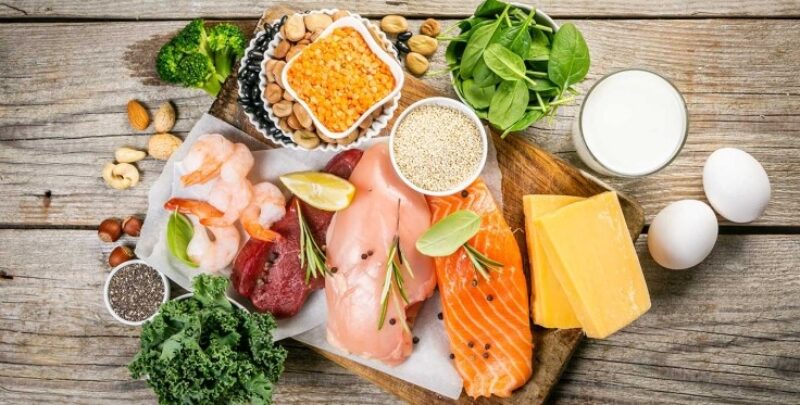June 2022 Do I need to use protein powders?
by Lauren Matheu
Protein powder has made a name for itself making up $13.5 billion dollars of the supplement industry alone. They have a lot of attention and we are hearing questions about selection and recommended use. There are several considerations when picking protein powders; let us help out by hitting the high points so you can make an informed choice.
What is protein powder
Protein powder is essentially a supplemental form of protein (we’ll call them “protein supplements” from here on out). They are not standardized or regulated, and they vary widely in their composition. Not all protein powders are created equal. Different types can include whey protein isolates, whey protein concentrates, whey protein hydrolysate, casein, and plant-based powders. Such supplements are made by extracting the protein from animal or plant-based sources that range from dairy, eggs, soy, peas, hemp or rice. Most often the naturally occurring fiber, fats, vitamins, minerals and carbohydrates are removed during processing. Many protein supplements also contain additives, flavors and fillers.

Protein from food vs. supplements
When deciding if you might benefit from using a protein supplement, considering how much protein you need is a big factor. Most people can get enough protein through their diet without needing a protein supplement. In fact, many people tend to overdo protein when adding a supplemental protein powder on top of their daily food intake. However, protein supplements may be helpful for individuals who have challenges meeting their daily protein needs, especially for those who have heightened protein needs including those receiving cancer treatment, those recovering from a burn injury or surgery, chronically ill patients and athletes. Protein supplements may also be helpful for those who don’t have the appetite to eat the amount of protein foods they need.
Whether the protein comes from food or a supplement, the body breaks it down to amino acids to use for biological work. The main difference—protein foods naturally come with more nutrients than just protein, which is why it’s recommended to take a “food first” approach (when possible) to meet daily protein needs. This is also the reason why protein powders are considered a supplement; they are designed to supplement the diet, not replace foods/meals (though there are circumstances/conditions where this is advised). Foods that are considered high in protein can include meats, poultry, seafood, beans, dairy, almonds, eggs, nuts, seeds, soy products, and even whole grains and some vegetables.
To reiterate, there are many circumstances that warrant protein supplement use. Additionally, many people choose to use a protein supplement because of preference, convenience, and many report a feeling of satiety with protein supplement use.
More protein is not necessarily better
While there are clear advantages to meeting daily protein needs and having protein paired with meals and snacks, extra protein is not necessarily better. Excess protein—whether from food or supplements—is not always efficiently used by the body, and more protein does not equal more muscle. Also, excess protein may lead to excess calories. Extra calories—whether from protein, fat or carbohydrates—get stored in the body. Extra protein can especially be problematic if it is displacing necessary carbohydrate and fat in the diet. Also, protein supplements can potentially cause digestive upset like bloating, gas, stomach cramps and diarrhea.

Picking a protein powder
If you decide that a protein supplement would be beneficial, there are some key things to keep in mind:
- Primary ingredients- Which protein source is best for you depends on dietary restrictions and taste preferences (We’ll save “isolates vs. concentrates vs. hydrolysate” for another post). Those experiencing digestive upset after trying a new protein powder should switch around protein sources to find one that feels good.
- Other ingredients- Sweeteners, flavors and additives are commonly found in many protein powders, but some brands contain more than others. “Sugar free” or “Low sugar” brands that still taste sweet usually contain sugar alcohols (like erythritol and sorbitol), which can also lead to digestive upset for some individuals.
- Third-party testing- Protein powders are classified as a dietary supplement in the U.S., which means they are not regulated by the Food and Drug Administration (FDA) in the same ways that foods and drugs are. In other words, the FDA does not test the safety and purity of protein supplements. Like other supplements, this means that the product may contain different ingredients than what’s listed on the label. This can be an issue because sometimes contaminants and heavy metals can make their way into supplements, and athletes especially need to know exactly what’s going into their shakes. This is why it’s recommended to look for a protein supplement that has third-party testing (NSF International’s Certified for Sports, USP). Consumer Lab is a good place to look for more information.
Bottom Line
Most people are able to get enough protein through the foods they consume, but there are circumstances when supplementing with a protein powder may be beneficial. Generally it is advised to opt for protein foods first, when possible. Meet with a registered dietitian nutritionist to understand your individual protein needs. See our Recipe of the Month, Protein Pancakes, for a new protein rich recipe!
Get to know the Author:
Lauren Matheu is a native of Colorado and grew up in Aurora. She moved to Fort Collins for her undergraduate degree and is a senior graduating in May 2022. She hopes to become a Registered Dietitian Nutritionist (RDN) in the long run, but for now, Lauren is going to be taking the nutrition and dietetics technician test after graduation and working under an RDN from there. Learn more about Matheu in her KRNC Student Spotlight post!
More Information:
For additional resources to healthy eating, check out these programs from our registered dietitian nutritionists. Find delicious and healthy recipes on our Recipes page! More health tips are also available at the College of Health and Human Sciences Pinterest board. Lastly, don’t forget to sign up for the KRNC monthly newsletter!


